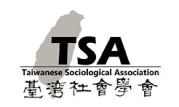2.在中界之處打造性自我:論雙性戀認同與情慾實踐(Crafting a Sexual Self in the Middle Ground: On Bisexual Identity and Bisex
2018-08-20
| 描述 Description |
中文摘要 雙性情慾理論指出,雙性戀雖得以被看見,但卻總被放置在中界之 處的處境中。本文嘗試探究在臺灣社會脈絡下,自我認同為雙性戀者, 如何在此中界境況中,回應異/同邏輯與其他情慾論述,以建立起自己 的性認同並實踐其雙性情慾。 本文主張:(1)在臺灣同志運動下所形成的同性戀次文化群體成 為雙性戀性認同建構的重要參照群體,而現代性的自我反身性大業,也 成為驅動雙性戀持續探索自我認同的核心動力;(2)雙性戀與同性戀 之間既競爭也合作的關係,使得具雙重意涵的「同志」對雙性戀來說成 為性身分地景中的重要選項,也使得酷兒成為較不可欲的身分標籤; (3)雙性戀者雖強調在情慾偏好上可向兩個性別開放,或是不重視性 別,但性別仍透過設定互動中的做性別模式以及身體象徵意義的性別 化,因而框架或甚至限制雙性戀的情慾活動。 關鍵詞: 雙性情慾、性認同、藩籬知識論、異同邏輯 |
| 形式 Form | 文字、單期 |
| 來源 Origin | 台灣社會學會 |
| 關聯 Relation | 台灣社會學刊第56期 |
| 英文摘要 abstract | Abstract Bisexual theorists point out that bisexuality occupies the position of a “middle ground.” This paper analyzes the social context of this so-called “middle ground” in Taiwan and explores how self-identified Taiwanese bisexuals forge their sexual identity and perform bisexuality. This article contends that: (1) gay and lesbian subcultural groups function as a significant referential in the construction of bisexual identity, driven by Giddens’ so-called reflexive project of the self in modernity; (2) the intertwined relationship of cooperation and competition between bisexuals and homosexuals in the LGBT movement in Taiwan makes the term “Tongzhi” of double meaning, becoming a more desirable identity but forging “queer” as a less desirable label; and (3) although the bisexuals interviewed for this research emphasize they are sexually attracted to either gender or neglect gender, gender still frames their bisexuality by setting up patterns of performing gender in interactions and impinging upon certain meanings of the body. Keywords: Bisexuality, Sexual Identity, Epistemology of Fence, Hetero/ Homo Logic |
| 創作者 Creator | 陳素秋(Su-Chiu CHEN) |
| 出版者 Publisher | 台灣社會學會 |
| 貢獻者 Contributor | |
| 權利 Right | 已授權 |
| 日期 Date | 2015年6月 |
| 格式 Format | |
| 識別碼 Code | tsa-tj-056_20150600_0001-0000-p |
| 語言 Language | 中文 |
| 數位檔連結Download | ( tsa-tj-056_20150600_0001-0000-p.pdf ) 華藝線上圖書館連結▼ |



